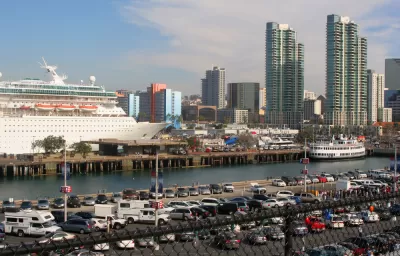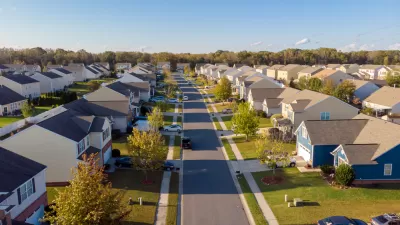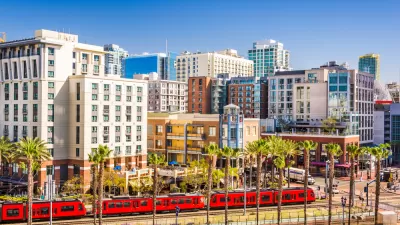Environmental causes run into conflict with zoning reforms intended for environmental benefit once again, as the California Coastal Commission requires San Diego to reinstate parking requirements for ADUs.

The California Coastal Commission (CCC), citing the public access requirements of the California Coastal Act, nixed zoning reforms approved by the city of San Diego making it possible to build accessory dwelling units without parking requirements.
A paywalled article by David Garrick for the San Diego Tribune reports the news, noting that the actions of the California Coastal Commission will apply only in the coastal areas o the city governed by the extra regulations of the California Coastal Act.
For non-paywalled news on the same story, an article by Frank Gormlie for OB Rag reports that the San Diego City Council has responded to the demands of the California Coastal Act by voting to rescind the parking reforms for accessory dwelling units in the coastal area.
Researchers have documented for years the lengths private property owners will go to restrict public access to the California coastline—a right guaranteed by the California Coastal Act approved in 1976—in addition to anecdotes reported in the news. The mandate to ensure access to coastal areas has for years focused on the inclusion of parking in coastal developments. The pressures between public access and private land ownership is mentioned in the CCC decision to block San Diego’s parking reforms.
It represents a potential substantial intensification of residential development in the coastal zone without a commensurate increase in off-street parking. An increase in parking demand could result in residents of the accessory uses, the primary residence, or both, occupying public parking that would otherwise be used by coastal visitors, increasing the burden of accessing the coast and deterring coastal recreation. -California Coastal Commission
A reasonable argument could be made, however, that exclusionary zoning regulations, such as onerous parking requirements, do more to restrict access to the California coast than any lack of parking. There is also, of course, the proven fact that parking induces Vehicle Miles Traveled (VMT) and increases greenhouse gas (GHG) emissions. Because transportation is the leading source of GHG emissions in the United States, parking requirements like those enforced in San Diego by the California Coastal Commission also present an existential risk to the coast of California, through sea-level rise, species extinction, and other negative externalities created by climate change.

Planetizen Federal Action Tracker
A weekly monitor of how Trump’s orders and actions are impacting planners and planning in America.

Maui's Vacation Rental Debate Turns Ugly
Verbal attacks, misinformation campaigns and fistfights plague a high-stakes debate to convert thousands of vacation rentals into long-term housing.

San Francisco Suspends Traffic Calming Amidst Record Deaths
Citing “a challenging fiscal landscape,” the city will cease the program on the heels of 42 traffic deaths, including 24 pedestrians.

Amtrak Rolls Out New Orleans to Alabama “Mardi Gras” Train
The new service will operate morning and evening departures between Mobile and New Orleans.

The Subversive Car-Free Guide to Trump's Great American Road Trip
Car-free ways to access Chicagoland’s best tourist attractions.

San Antonio and Austin are Fusing Into one Massive Megaregion
The region spanning the two central Texas cities is growing fast, posing challenges for local infrastructure and water supplies.
Urban Design for Planners 1: Software Tools
This six-course series explores essential urban design concepts using open source software and equips planners with the tools they need to participate fully in the urban design process.
Planning for Universal Design
Learn the tools for implementing Universal Design in planning regulations.
Heyer Gruel & Associates PA
JM Goldson LLC
Custer County Colorado
City of Camden Redevelopment Agency
City of Astoria
Transportation Research & Education Center (TREC) at Portland State University
Jefferson Parish Government
Camden Redevelopment Agency
City of Claremont





























